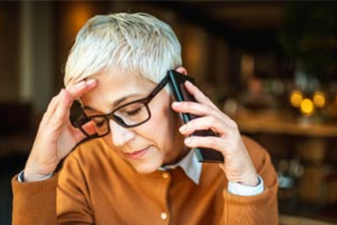Does Cancer Fatigue Ever Go Away
Apr 7, 2021It can make people feel like they’ve had a few rounds in a boxing ring. Lack of energy, sleeping more, feeling completely wiped out, not wanting to do normal activities or being unable to do them, trouble thinking or concentrating, paying less attention to personal appearance and feeling tired physically and emotionally are all common symptoms of fatigue.
For some people, their fatigue improves quickly, yet for others it can last well after their cancer treatment has finished. Either way, fatigue can be very frustrating as it can prevent you from functioning normally and gets in the way of doing things you enjoy or need to do. However, by understanding your fatigue you can do things to help minimise the effect of it and find ways to improve your own stamina and strength.
Why fatigue might last longer for some patients and not others is unknown. There are so many causes of fatigue and everyone’s experience is different which makes it virtually impossible to find one single solution to help relieve it or predict when it might start to get better.
A lot of people underestimate how much fatigue can affect their daily lives. Some patients can feel like their fatigue is a constant reminder of their cancer, which makes it hard to accept and others worry that family, friends and colleagues might get upset or become impatient with them if they complain about feeling tired, have no energy or be completely wiped out.
So, with little certainty around when your fatigue might improve, the question becomes how do you cope with it?
Understanding the patterns of your own fatigue, what you can do on a good day and what happens on a bad day, and how long it might last are key to help managing fatigue. One of the first things you should do is talk to your doctor or nurse and explain what you are experiencing and how bad it is so they can help you find ways to manage your symptoms.
Canopy has introduced a Under the Canopy program which provides patients a toolkit of evidence based complementary therapies that help them manage the side effects of their cancer treatment. These include advice on reducing stress and anxiety, assistance with improving physical strength through personalised fitness and rehabilitation programs, guidance on nutrition and diet and other services specially designed for cancer patients.
It’s important to remember that although fatigue is a common side effect of cancer, there are people you can talk to and steps you can take to reduce the impact and help you cope with it.




